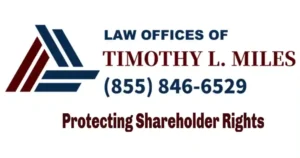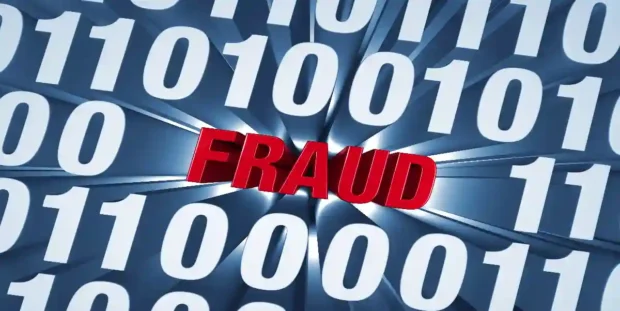Introduction to the DoubleVerify Class Action Lawsuit
The DoubleVerify class action lawsuit seeks to represent purchasers or acquirers of DoubleVerify Holdings, Inc. (NYSE: DV) common stock between November 10, 2023 and February 27, 2025, inclusive (the “Class Period”). Captioned Electrical Workers Pension Fund, Local 103, I.B.E.W. v. DoubleVerify Holdings, Inc., No. 25-cv-04332 (S.D.N.Y.), the DoubleVerify class action lawsuit charges DoubleVerify and certain of DoubleVerify’s top executives with violations of the Securities Exchange Act of 1934.
If you suffered substantial losses and wish to serve as lead plaintiff of the DoubleVerify class action lawsuit, or just have general questions about you rights as a shareholder, please contact attorney Timothy L. Miles of the Law Offices of Timothy L. Miles, at no cost, by calling 855/846-6529 or via e-mail at tmiles@timmileslaw.com. Lead plaintiff motions for the DoubleVerify class action lawsuit must be filed with the court no later than July 21, 2025.
An investor must read on five things every shareholder should know about a securities fraud class action such as the DoubleVerify class action lawsuit,
1. Understanding Securities Fraud
Securities fraud, a serious offense in the financial world, involves deceptive practices in the stock and commodities markets. This type of fraud can significantly harm investors and undermine the integrity of financial markets. One notable instance is the DoubleVerify class action lawsuit, which highlights the critical need for transparency and accurate information in corporate disclosures.
Securities fraud can take various forms, including insider trading, misrepresentation of a company’s financial status, and market manipulation. Each of these activities can lead to significant financial losses for investors and erode trust in financial systems.
In the case of the DoubleVerify class action lawsuit, shareholders alleged that the company made false or misleading statements regarding its business practices and financial health, which resulted in artificially inflated stock prices. When the truth emerged, the stock price plummeted, causing substantial losses for investors.

The DoubleVerify lawsuit underscores the importance of corporate governance and adherence to regulatory requirements to ensure that all stakeholders have access to truthful and complete information.
Effective oversight mechanisms, stringent legal frameworks, and vigilant enforcement are essential to prevent securities fraud and protect investor interests.
Understanding the implications of securities fraud is crucial for anyone involved in the financial markets. Investors must conduct thorough due diligence and remain vigilant about potential red flags in their investments.
Furthermore, regulatory bodies must continuously evolve to address new tactics employed by fraudsters.
The DoubleVerify lawsuit serves as a reminder of the ongoing challenges in maintaining fair and transparent markets. By learning from such cases, stakeholders can work towards creating a more secure and trustworthy financial environment.
2. Recognizing the Signs of Securities Fraud
Recognizing the signs of securities fraud is essential for investors, as it helps them to protect their portfolios and ensure the integrity of the financial markets. Securities fraud encompasses a range of illegal activities, including misinformation, insider trading, and market manipulation.
A critical case that highlights the importance of awareness is the recent DoubleVerify class action lawsuit, which serves as a stark reminder of how sophisticated schemes can be.
Investors must be vigilant in identifying red flags such as unreasonably high returns, pressure to invest quickly, and lack of transparency in financial statements. Understanding these indicators can prevent significant financial losses and maintain market trust.
The DoubleVerify class action lawsuit underscores the complex nature of securities fraud and the need for continuous education among investors. In this case, the company was accused of providing misleading information about its financial health, which led to inflated stock prices. Investors who were not diligent in their research fell victim to these deceptive practices.
To avoid such pitfalls, it is crucial to conduct thorough due diligence when evaluating potential investments. This includes scrutinizing financial reports, understanding the business model, and paying attention to any discrepancies or unusual patterns that may suggest fraudulent activity.
Regulatory bodies like the Securities and Exchange Commission (SEC) play a pivotal role in detecting and prosecuting securities fraud. However, individual investors also bear responsibility for safeguarding their investments. By staying informed about recent lawsuits like the DoubleVerify lawsuit, they can better understand the tactics used by fraudulent entities and take proactive measures to protect themselves.
Joining investment forums, attending seminars, and utilizing educational resources can enhance an investor’s ability to recognize and respond to suspicious activities.
In conclusion, recognizing the signs of securities fraud is paramount for investors aiming to secure their financial interests. High-profile cases such as the DoubleVerify lawsuit, illustrate how pervasive and damaging these fraudulent activities can be. By staying informed, conducting rigorous due diligence, and leveraging educational resources, investors can better protect themselves from falling prey to such schemes.
Ultimately, a collective effort from both regulatory authorities and individual investors is necessary to uphold market integrity and foster a trustworthy investment environment.
Below is a list of Red Flags of investment Fraud Checklist offered by Investor.gov:
- Protect your investments by watching out for these red flags:
- Unlicensed investment professionals
- Aggressive sellers who may provide exaggerated or false credentials
- Offers that sound “too good to be true”
- “Risk-free” investment opportunities
- Promises of great wealth and guaranteed returns
- “Everyone is buying it” pitches
- Pressure to invest right now
- Over-the-top, sensational pitches that may have fake testimonials
- Unsolicited pitches seeking to obtain your personal information
- Asked to pay for investments by credit card, gift card,
or wiring money abroad or to a personal account
3. The Legal Process of a Securities Fraud Lawsuit
The legal process of a securities fraud lawsuit is a complex and structured procedure designed to address allegations of deceptive practices in the trading of securities. When investors believe they have been misled or defrauded by a company or its executives, they can initiate a class action lawsuit to seek redress for their losses. The DoubleVerify class action lawsuit is a notable example, where shareholders claimed that the company and its officers made false or misleading statements about its business operations and financial health.

The first step in a securities fraud lawsuit is the filing of a complaint. This document outlines the plaintiffs’ allegations, detailing how the defendants allegedly violated securities laws. In the case of the DoubleVerify class action lawsuit, the amended complaint that will be filed after lead plaintiff is appointed , will specify how the company’s misrepresentations or omissions impacted shareholders’ investment decisions.
Once filed, the court must determine whether the case can withstand a motion to dismiss, and then whether it meets the criteria for a class action, which includes assessing whether there are common legal or factual questions among the potential class members.
Discovery is the next phase, where both parties gather evidence to support their claims and defenses. This process can be lengthy and involves depositions, document requests, and interrogatories. In high-profile cases like the DoubleVerify lawsuit, discovery may uncover significant internal communications and financial records that could substantiate the plaintiffs’ allegations.
Following discovery, the court may hear motions for summary judgment. A motion to dismiss argues that even if all allegations are true, they do not constitute a legal violation. In contrast, a motion for summary judgment contends that there are no factual disputes requiring a trial. If these motions are denied, the case proceeds to trial, where both sides present their evidence and arguments.
Throughout this process, there may be opportunities for settlement negotiations. Many securities fraud lawsuits are resolved through settlements to avoid the uncertainty and expense of a trial. In the DoubleVerify lawsuit, a settlement might involve compensation to affected shareholders and potentially changes to corporate governance practices to prevent future misconduct.
Ultimately, the legal process of a securities fraud lawsuit aims to hold companies accountable for their actions and provide restitution to investors who have suffered financial harm. The outcome of such cases can have far-reaching implications for corporate behavior and investor protection, reinforcing the importance of transparency and honesty in financial markets.
4. The Role of Regulatory Bodies in Securities Fraud
Regulatory bodies play a crucial role in maintaining the integrity of financial markets and protecting investors from securities fraud. These organizations, such as the SEC in the United States, are tasked with enforcing laws and regulations that govern market activities, ensuring transparency, and promoting fair practices.
Their oversight helps to identify and address fraudulent activities, such as insider trading, market manipulation, and misrepresentation of financial information. A recent example highlighting the importance of regulatory bodies is the DoubleVerify class action lawsuit. This case underscores how vigilant regulatory oversight can uncover deceptive practices and hold entities accountable for misleading investors.

The DoubleVerify class action lawsuit illustrates the critical function of regulatory bodies in detecting and responding to potential securities fraud. In this instance, DoubleVerify was accused of providing false information about its financial health, which misled investors and artificially inflated its stock price.
The SEC’s possible intervention in this case not only would help to expose the alleged fraud but also serve as a deterrent to other companies that might consider engaging in similar deceptive practices. By pursuing legal action against companies, regulatory bodies reinforce the importance of honesty and transparency in financial reporting.
In conclusion, the role of regulatory bodies in combating securities fraud cannot be overstated. Their diligent oversight ensures that companies adhere to legal standards, which helps maintain investor confidence and the overall stability of financial markets.
Cases like the DoubleVerify class action lawsuit and others highlight the necessity of these regulatory institutions in identifying and mitigating fraudulent activities, ultimately fostering a fair and transparent market environment.
5. Seeking Compensation for Losses
When individuals and institutions invest in securities, they entrust their financial future to the accuracy and honesty of the information provided by the companies in which they invest. Unfortunately, instances of securities fraud can shatter this trust, leading to significant financial losses for investors. In such cases, seeking compensation through legal channels becomes imperative.
One notable example is the DoubleVerify class action lawsuit, where shareholders brought a collective legal action against the company, alleging that it had misled investors regarding its financial health and future prospects. The DoubleVerify class action lawsuit highlights the critical role that class action lawsuits play in addressing securities fraud. These legal actions enable numerous affected investors to combine their resources and litigate as a unified entity, thereby increasing their chances of obtaining fair compensation.
The process of seeking compensation for losses in securities fraud is often complex and requires the expertise of skilled legal professionals who specialize in securities law. Attorneys involved in cases like the DoubleVerify class action lawsuit meticulously examine financial statements, disclosures, and other relevant documents to build a compelling case. They aim to demonstrate that the company engaged in deceptive practices that directly resulted in investor losses.

This thorough approach not only aids in securing compensation for the victims but also serves to hold the responsible parties accountable for their actions. Furthermore, successful outcomes in such lawsuits can have a deterrent effect, discouraging other corporations from engaging in similar fraudulent activities.
For investors, participating in a class action lawsuit offers several advantages. It allows them to share the costs associated with litigation, making it financially feasible to pursue justice even if individual losses are relatively small.
Moreover, it provides a platform for collective bargaining power, which can lead to more substantial settlements or judgments. As seen with the DoubleVerify class action lawsuit, when investors come together with a unified voice, they significantly enhance their ability to recover their losses and reinforce the importance of transparency and integrity within the securities markets.
Conclusion
.Navigating the complexities of securities fraud lawsuits can be daunting, but understanding the key elements can empower investors to take action. By recognizing the signs of fraud, knowing the legal process, and seeking appropriate compensation, investors can protect their financial interests and hold wrongdoers accountable.
If you believe you have been a victim of securities fraud, it is crucial to act swiftly. Consult with a qualified attorney who specializes in this area to explore your options and ensure your rights are protected. Remember, you are not alone in this fight; there are resources and professionals available to help you reclaim your investments and seek justice.
If you suffered substantial losses and wish to serve as lead plaintiff of the DoubleVerify class action lawsuit or just have general questions about you rights as a shareholder, please contact attorney Timothy L. Miles of the Law Offices of Timothy L. Miles, at no cost, by calling 855/846-6529 or via e-mail at tmiles@timmileslaw.com.
Contact Timothy L. Miles Today About an Doubleverify Class Action Lawsuit
If you suffered losses in Doubleverify stock, call us today for a free case evaluation about an DoubleVerify class action lawsuit. 855-846-6529 or tmiles@timmileslaw.com (24/7/365), or to just discuss your options and rights as a shareholder of the company
Timothy L. Miles, Esq.
Law Offices of Timothy L. Miles
Tapestry at Brentwood Town Center
300 Centerview Dr. #247
Mailbox #1091
Brentwood,TN 37027
Phone: (855) Tim-MLaw (855-846-6529)
Email: tmiles@timmileslaw.com
Website: www.classactionlawyertn.com







